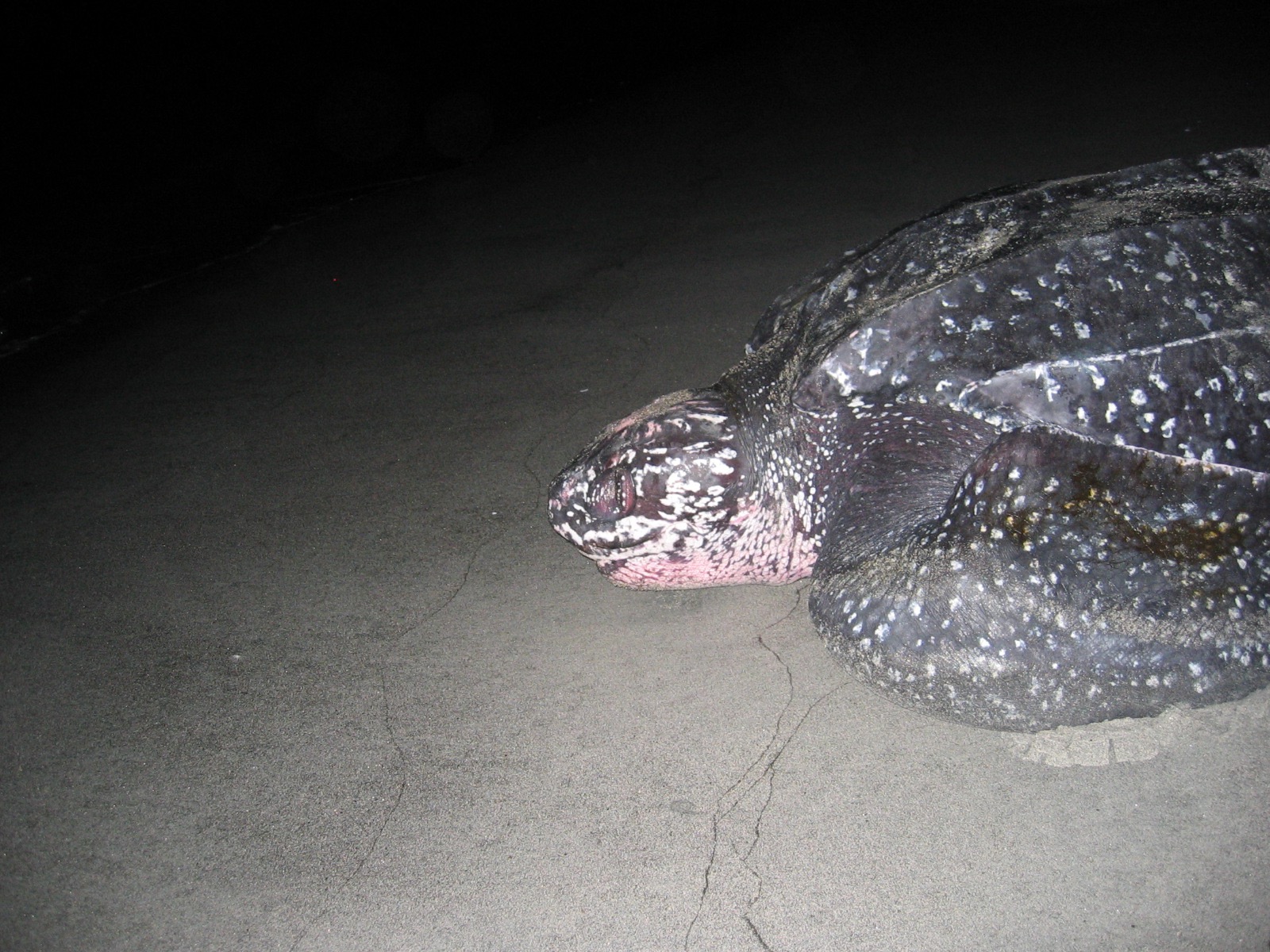A decade ago, Turtle Island Restoration Network led the charge in advocacy and public awareness campaigns focusing on saving the Pacific leatherback sea turtle.
But we also were planting the seeds for building the conservation movement in the Western Pacific region.
And now ten years later, we can reflect on the progress made.
The Leatherback Sea Turtle Campaign
Ten years ago, Turtle Island Restoration Network began a series of campaigns to respond to alarming scientific data that pointed to a precipitous 90 percent decline in the population of Pacific leatherback sea turtles. These campaigns included hard-hitting legal actions to win fishery closures, full-page ads, consumer campaigns, and a documentary.
While the majority of our efforts targeted industrial fishing operations, we also launched a smaller campaign to work with communities in Papua New Guinea to protect nesting leatherback sea turtles and their hatchlings and marine resources.
The Program in Papua New Guinea
Leatherback sea turtles are highly migratory, and the leatherbacks that swim off the California coast (where Turtle Island is headquartered) often migrate from the West Pacific. Major leatherback nesting beaches in the region include those in Indonesia (Irian Jaya) and Papua New Guinea.
In 2006, Turtle Island established a presence in Papua New Guinea when we hired Wences Magun as our Western Pacific Campaigner.

Western Pacific Campaigner Wences Magun traveling to a community location with Executive Director Todd Steiner.
The goals of the campaign were to raise awareness in the region about increasing protections for leatherback sea turtles, to explore the development of community-based conservation solutions, to highlight the impacts of industrial fishing on local food supply, and to bring awareness about other impacts of industrial activities on the marine environment.
As a result of the program, we made great strides with our campaign:
- In 2006, we hired a Western Pacific Campaigner;
- We met with communities in Madang and Lae Provinces to talk about endangered sea turtles, threats to local fish stocks, and models of community-based conservation;
- We raised awareness about the regional threats associated with sea bed mining;
- We secured regional and international media coverage on the plight of endangered sea turtles and the importance of the nesting beaches in Papua New Guinea; and
- In 2008, as a result of our work, the village of Karkum signed a Conservation Deed to establish its own locally-managed marine area.

A PNG village gathering to watch a TIRN-produced documentary on the plight of endangered leatherbacks.
“Conservation Deeds in PNG are the result of a community-driven process that creates a locally managed conservation area, and a long term community stake in the protection of natural resources in ways that also meet the economic and social needs of the community.” -Wences Magun
Growth Beyond Our Program
After Turtle Island completed our project in the area, Wences Magun continued to be a strong presence in Papua New Guinea and has helped to build the conservation movement.
Here are some of the seeds that have come to fruition by the ongoing hard work of Wences and others:
- A PNG-based nonprofit organization, Mas Kagin Tapani (MAKATA), was formed (with the support and encouragement of Turtle Island) to continue and grow community-based marine conservation work in Papua New Guinea and the region;
- MAKATA aims to continue its current programs in working with coastal communities in the Bismarck and Solomon Seas to restore and protect the critically endangered Leatherback sea turtles and incorporate new goals and objectives as well based on community needs;
- In 2013, the communities of Kimadi and Magubem established resource management areas using traditional management system; and
- In 2014, Mur employed an Adaptive Community Resource Management Plan to address environmental and social issues; and
- Ongoing community outreach, reaching more than 10,000 people, has occurred in Kimadi, Magubem, Tokain, Yadigam, Mirap, Karkum, Basken and Sarang Villages in the Sumkar District and Mur, Sel, Baru, Yamai, Lalok, Male, and Bom-Sagar Villages in the Rai Coast District.
Turtle Island recognizes the hard work of the folks in Papua New Guinea and is honored to have played a role in advancing the protection of sea turtles and marine conservation in the region.






